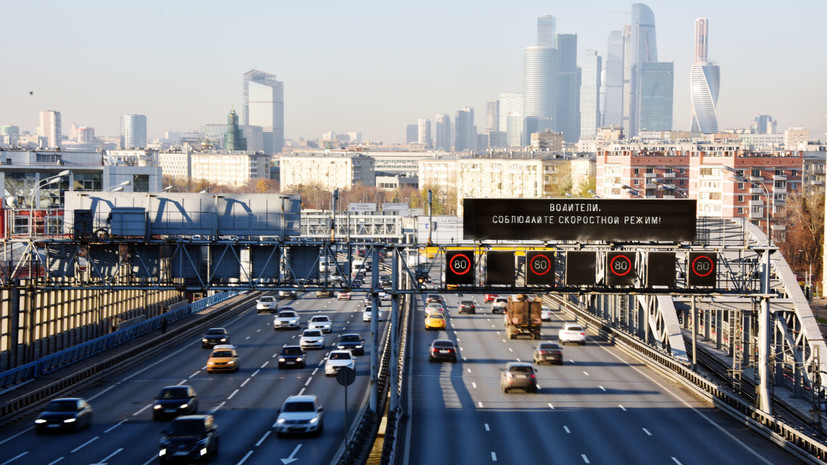The size of fines for violation of traffic rules in the new draft Code of Administrative Offenses (CAO) will be revised. According to Denis Novak, deputy head of the Ministry of Justice, the previously proposed amount of penalties for traffic violations does not correspond to the current situation.
“Today, it is absolutely certain that the sharp increase in penalties does not meet the needs of society, in this regard, the project will be changed,” RIA Novosti quotes the deputy head of the Justice Ministry.
Novak stressed that the main goal of the new CAO is to ensure the safety of life and health of citizens on the roads. The authors of the amendments were guided by this.
The deputy head of the department added that as part of the work, it is necessary to improve the infrastructure, monitor the installation of road signs, approve the requirements for video fixation tools and the rules for their placement, as well as develop a simplified procedure for appealing fines, including by electronic means.
Recall that at the end of January the Ministry of Justice published a draft of the new Code of Administrative Offenses developed on behalf of the government. The document includes new fines for traffic violations, including speeding.
For violation of the speed limit by 20-40 km / h it was proposed to increase fines from the current 500 to 3,000 rubles. For a more serious excess (40-60 km / h) - from 1000-1500 to 4000 rubles. For exceeding the limit of 60 km / h or more - a sanction of 5000 rubles or deprivation of rights for 4-6 months (from 2000 to 2500 rubles in the current version).
This version of the project has been criticized by the public and senior officials of the state. The head of the Russian government, Mikhail Mishustin, called the proposed measures to increase fines excessive for the population. The Prime Minister expressed the opinion that salaries in the country do not yet contribute to increased penalties for speeding in the proposed amount.
The initiative was also not supported in the State Duma. Secretary of the General Council of the United Russia party Andrei Turchak said that he sees the document as "toughening repressive mechanisms."
“The law is needed to prevent crime, and not to create a repressive machine or additional penalties from the population,” the parliamentarian said.
However, in the capital's Center for Traffic Management (DPC) fines from the new edition of the Administrative Code supported. The deputy head of the organization, Arthur Shahbazyan, stated that the recovery of 250 rubles (taking into account a 50% discount) "is not a barrage measure, which should be a fine for violation."
“My personal opinion is that a speeding ticket ... is probably not a horse measure. In this case, speeding, if intentional, is a direct threat to people. We reported this position, but this decision is not for us. My personal opinion is that even 5000 rubles for exceeding 60 km / h is quite loyal, ”he said.
However, auto experts agreed with the negative assessment of the new fines, which was expressed by politicians. So, the director of the National Public Center for Traffic Safety Sergei Kanaev said that the fines proposed in the new draft Code of Administrative Offenses do not correspond to the current situation in the country.
“The project that has now been completed under the new Code of Administrative Offenses does not exactly meet the demands of not only society, but also, in principle, of the state to reduce accidents and improve road safety,” the source said.
Instead, he called for “bringing to mind” the idea of introducing the terms “aggressive” and “dangerous driving.”
“Aggressive and dangerous driving, following international experience, should be considered as different things. Dangerous driving is what led to serious consequences: traffic accidents, destruction, etc. And aggressive driving is disrespect to other road users and misleading them, ”Kanaev believes.
In turn, the editor-in-chief of the magazine “Behind the Wheel” Maxim Kadakov urged to pay attention to the very principle of the formation of fines for motorists. In an interview with RT, he suggested that a different approach should be applied to malicious offenders and drivers without a history of violations.
“If a person with a good reputation, he has few fines, no accidents, he has decent driving experience, for some reason, and we have a million reasons, the signs are crooked, the markings contradict the signs, etc., they exceed the speed, conditionally , at 23 km and he is “caught” by a camera or a policeman, in this case a warning is enough, ”the expert suggested.
In his opinion, a conscientious driver will draw the necessary conclusions from this situation, unlike systematic violators.
“Drivers with a very poor reputation, even for a minimal violation, should receive maximum fines up to deprivation of rights,” the expert noted.
In addition, he called for the introduction of non-monetary fines, providing, for example, a temporary restriction on the use of the car.
“Intangible punishments sometimes act much stronger than fines. Because there is a category of people, primarily in the capital and large cities, for which paying the accumulated 50 thousand fine is worth nothing, ”summed up Kadakov.

